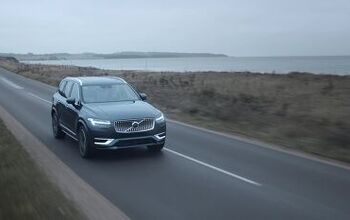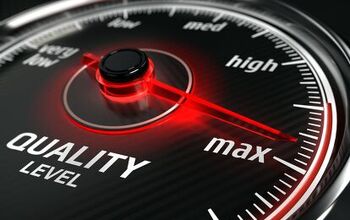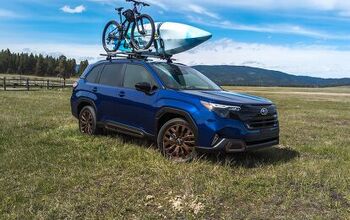J.D.Power: EVs Are Hype

In a former life, I had worked a bit with J.D. Power. I knew them intimately. We had our issues. This is one of the few times I wholeheartedly agree with them. “Future global market demand for hybrid and battery electric vehicles may be over-hyped” is the conclusion of a new J.D.Power study, titled “Drive Green 2020: More Hope than Reality.”
For 2010, J.D.Power sees worldwide sales of hybrid electric vehicles (HEVs) and battery electric vehicles (BEVs) to total 954,500 vehicles, or 2.2 percent of the 44.7 million vehicles projected to be sold through the end of 2010. That picture should surely change 10 years later, no?
No. By 2020, J.D.Power sees combined global sales of HEVs and BEVs at 5.2 million units, or just 7.3 percent of the 70.9 million passenger vehicles forecasted to be sold worldwide by that year. And what’s keeping them? It’s not range anxiety. It’s plain old money.
“While many consumers around the world say they are interested in HEVs and BEVs for the expected fuel savings and positive environmental impact they provide, their interest declines significantly when they learn of the price premium that comes with purchasing these vehicles.”
“Many consumers say they are concerned about the environment, but when they find out how much a green vehicle is going to cost, their altruistic inclination declines considerably,” said Humphrey. “For example, among consumers in the U.S. who initially say they are interested in buying a hybrid vehicle, the number declines by some 50 percent when they learn of the extra $5,000, on average, it would cost to acquire the vehicle.”
If hybrids and plugins are supposed to be a huge success, one, or preferably more of the following needs to happen.
- A significant increase in the global price of petroleum-based fuels by 2020
- A substantial breakthrough in green technologies that would reduce costs and improve consumer confidence
- A coordinated government policy to encourage consumers to purchase these vehicles.
But, says the report, “based on currently available information, none of these scenarios are believed to be likely during the next 10 years.”
“While considerable interest exists among governments, media and environmentalists in promoting HEVs and BEVs, consumers will ultimately decide whether these vehicles are commercially successful or not,” said John Humphrey, senior vice president of automotive operations at J.D. Power and Associates. “Based on our research of consumer attitudes toward these technologies—and barring significant changes to public policy, including tax incentives and higher fuel economy standards—we don’t anticipate a mass migration to green vehicles in the coming decade.”
If that’s what their research says, then the truth will be much bleaker. Consumers are known to lie through their teeth when it comes to green issues.
In developing countries, and that’s where the growth is and will be, money plays an even bigger role. Ironically, if they buy cars with as much abandon as expected, maybe the “significant increase in the global price of petroleum-based fuels” part will happen earlier.

Bertel Schmitt comes back to journalism after taking a 35 year break in advertising and marketing. He ran and owned advertising agencies in Duesseldorf, Germany, and New York City. Volkswagen A.G. was Bertel's most important corporate account. Schmitt's advertising and marketing career touched many corners of the industry with a special focus on automotive products and services. Since 2004, he lives in Japan and China with his wife <a href="http://www.tomokoandbertel.com"> Tomoko </a>. Bertel Schmitt is a founding board member of the <a href="http://www.offshoresuperseries.com"> Offshore Super Series </a>, an American offshore powerboat racing organization. He is co-owner of the racing team Typhoon.
More by Bertel Schmitt
Latest Car Reviews
Read moreLatest Product Reviews
Read moreRecent Comments
- SCE to AUX Over the last 15 years and half a dozen vehicles, my Hyundais and Kias have been pretty cheap to maintain and insure - gas, hybrid, and electric.I hate buying tires - whose cost goes by diameter - and I'm dreading the purchase of new 19s for the Santa Fe.I also have an 08 Rabbit in my fleet, which is not cheap to fix.But I do my own wrenching, so that's the biggest factor.
- MaintenanceCosts '19 Chevy Bolt: Next to nothing. A 12v battery and a couple cabin air filters. $400 over five years.'16 Highlander Hybrid, bought in 2019: A new set of brakes at all four corners, a new PCV valve, several oil changes, and two new 12v batteries (to be fair, the second one wasn't the car's fault - I had the misfortune of leaving it for a month with both third-row interior lights stealthily turned on by my kid). Total costs around $2500 over five years. Coming due: tires.'11 BMW 335i, bought in late 2022: A new HID low beam bulb (requiring removal of the front fascia, which I paid to have done), a new set of spark plugs, replacements for several flaking soft-touch parts, and two oil changes. Total costs around $1600 over a year and a half. Coming due: front main seal (slow leak).'95 Acura Legend, bought in 2015: Almost complete steering and suspension overhauls, timing belt and water pump, new rear brakes, new wheels and tires, new radiator, new coolant hoses throughout, new valve cover gaskets, new PS hoses, new EGR valve assembly, new power antenna, professional paint correction, and quite a few oil changes. Total costs around $12k over nine years. Coming due: timing belt (again), front diff seal.
- SCE to AUX Given this choice - I'd take the Honda Civic Sport Hatchback (CVT). I 'built' mine for $28777.To my eye, the Civic beats the Corolla on looks these days.But for the same money, I can get an Elantra N-Line with 7-speed DCT, 201 HP, and good fuel economy, so I'd rather go for that.
- Dr.Nick The cars seem really expensive with tight back seats and Cadillac was on the list of the highest price gouging dealers coming out of COVID. I don’t understand the combination, shouldn’t they be offering deals if they are not selling?
- Dr.Nick Too bad the Turbo XT isn’t coming. The Outback Turbo is not bad at all, would be a lot of fun in the shorter Forester.































Comments
Join the conversation
Daanii2 It's your right to cherry pick what scientific findings you choose to accept, but those who deny study after study that reach the same conclusion; our climate is changing and that change is at least in part influenced by human actions, start looking more and more like the members of the Flat Earth Society. Like when 400 leading climate scientist released a report on the causes and consequences of Climate Change our Alaskan congressman still doubted their findings and asked for a second opinion! instead of looking at what could reasonable be done to adapt to and slow down the changes we are seeing.
"As for me, I’m skeptical. And when people who personally profit from proclaiming that theory are the loudest voices (as do Al Gore and climate scientists), my skepticism increases." Aren't the people with the most to keep by denying this theory the ones currently making the most money? Shouldn't you be discounting them the most? This just reveals how powerful the status quo is. When we think someone pointing out a problem with the status quo is the one with the most at stake...rarely. The ones denying the possibility of a human impact have the most to keep by their position. Yes, Al Gore has something to gain, but it pales in comparison to the size of thing that is trying to be kept.